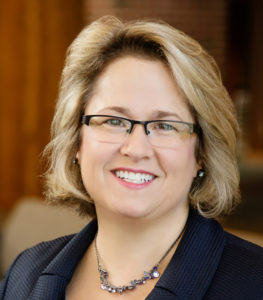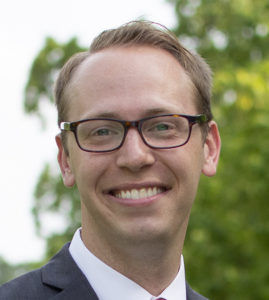

Robin Fretwell Wilson is Director, Institute of Government and Public Affairs, University of Illinois System & Roger and Stephany Joslin Professor of Law, University of Illinois College of Law
Tanner Bean is an Attorney with the law firm Fabian VanCott in Salt Lake City, Utah
U.N. Special Rapporteur, Ahmed Shaheed’s, report on freedom of religion or belief (“FoRB”) and gender equality (the “Report”) comes at an important moment in our collective existence. Many of us in many countries are struggling with the spread of the COVID-19 pandemic, fearing the impact on our families and communities. Yet, in the midst of this crisis, churches and people of faith continue to serve, albeit in altered and unique ways. In uncertain times like these, churches often rush to fill dire needs and remind us that we all need each other.
Similarly, the Report shows that we rise and fall together. In particular, it demonstrates that FoRB promotes human dignity in and outside the contexts of religion, sex, sexual orientation, and gender identity. However, as observed by Special Rapporteur, FoRB and LGBT+ non-discrimination, despite their general complementarity as parallel rights, have come into increasing conflict, not only in the U.S., but across the globe. The Report, with its particular focus on gender equality, states: “in every region of the world, the Special Rapporteur has identified laws . . . that effectively deny women and other individuals the right to equality and non-discrimination on the basis of their sex, sexual orientation or gender identity.” (para 9). And more to the work we have done, the Report finds these laws—and the cultural and/or religious practices motivating and supporting them—prevent LGBT+ persons from fully enjoying their human rights, thereby creating impediments to everyday life in the areas of marriage, parenting, healthcare, education, employment, housing, social security, and FoRB itself. Our LGBT+ neighbors need the security of life without unnecessary hurdles, just as all of us do as we navigate a global health crisis.
Ultimately, while condemning law and policy that restrict human rights, including for LGBT+ persons, the Report recommends a practical approach to balancing FoRB and LGBT+ non-discrimination. Many people will ask why. Simply put, practical approaches made in good faith respect all people.
To be sure, care must be taken in how these laws are constructed. The Report makes some interesting new observations: the “overlap between [FoRB] and the right to non-discrimination needs to be addressed not by trade-offs or a hierarchy, but by producing ‘practical concordance’ of all human rights involved, to the maximum degree possible, based on reasons accessible to all.” (para 53, emphasis added.) The Report elaborates: the “principle of ‘reasonable accommodation’ for religious persons or institutions can be a pragmatic tool for States to promote pluralism and overcoming intolerance and discrimination based on religion or belief. In fact, exemptions from general laws may be essential to ensure that religious minorities are not indirectly discriminated against by facially neutral laws.” (para 72.) Yet, the Report notes “it is difficult to justify accommodation of religious beliefs when the consequences are discriminatory and impose harm on others . . . When claims based on freedom of religion or belief and of non-discrimination collide, a careful analysis of all the relevant information should be made to maximize the protection of both sets of rights through a proportionality analysis rather than an abstract hierarchy of rights.” (para 72.)
People of good faith should affirm these practical, commonsense recommendations adopted by the Special Rapporteur. Tragically, religious groups and LGBT+ communities, in large part, have not come together to broker the kind of peace envisioned by the Special Rapporteur.
The Fairness for All Initiative, a principled approach in the United States founded by Professor Robin Fretwell Wilson as she worked with the Utah Legislature on landmark legislation in 2015, strikes out in a more hopeful direction. Fairness for All proceeds from a simple idea: faith, sexuality, and gender identity need not be at odds. The best way to protect religion is to protect the LGBT+ community from discrimination. And the best way to secure nondiscrimination protections is to make sure that religion is not inadvertently harmed. In practice, Fairness for All laws combine robust protections for FoRB with non-discrimination protections for the LGBT+ community, building the strongest, most stable response to the needs of faith communities and religious individuals at a time of great social change. For example, rather than awarding the public square to the LGBT+ community or the religious community, one Fairness for All law permits LGBT+ and religious employees to express their views on gender, sexuality, and marriage in and outside the workplace without fear of retribution by their employers.
In legislation, Fairness for All first made good on the Special Rapporteur’s pragmatic approach to promoting pluralism in Utah. There, in a landmark feat of collaboration, Utah enacted a pair of laws in 2015 that balanced LGBT+ rights and religious liberty. The resulting laws outstripped the amount and variety of religious liberty and LGBT+ protections found in any state that had voluntarily adopted same-sex marriage. One measure bans discrimination against lesbians, gays, bisexuals, and transgender individuals in employment and housing, while the second protects the right of individuals and religious institutions to maintain the character of their faith communities through careful accommodations and legal innovations. Another measure ensures equal access to marriage licensing at governmental offices, regardless of gender or sexual orientation, while safeguarding public servants with religious conceptions of marriage. In doing so, Utah made no value judgment on the hierarchy of rights, choosing to focus instead on how to practically enshrine FoRB and LGBT+ non-discrimination. Five years later, Utah—a state with one of the most conservative and religious populations in the country—ties for second as the second-most supportive state of LGBT+ non-discrimination. When rights are protected, fear is removed. Antagonism slips away. And human dignity flourishes.
Beyond Utah, the Fairness for All approach has a lot of wind in its sails. Although Fairness for All proposals continue to be debated across the country, most recently, the Fairness for All Act was introduced in the U.S. Congress by a group of Republican congressmen. As the only federal measure to promote both religious freedom and LGBT+ rights, it builds on Utah’s model and addresses several more culture war collision points, such as religious education, tax-exempt status of religious organizations, and adoption and foster care. Just last month, at a hearing before the U.S. House of Representatives’ Committee on Oversight and Reform, Fairness for All principles were brought to the forefront—that neither religious freedom nor LGBT+ non-discrimination must always give way to the other. Rather, statements made by Walter Olsen, of the Cato Institute, focused on narrow religious accommodations which otherwise allow the project of LGBT+ non-discrimination to achieve its ends.
This growing movement to end the culture war has encountered stiff resistance by two warring groups who continue to seek winner-takes-all approaches to human rights. A loud group of conservatives and religious organizations argue for broadened religious freedom protections to the exclusion of LGBT+ equality. Similarly, many LGBT+ rights organizations and liberal-minded politicians call for the expansion of LGBT+ rights, condemning invocations of religious liberty as veiled bigotry. Both are motivated by the fear of discrimination—that unless they conquer the other, their ability to live openly according to their deeply-held beliefs will be extinguished. Fairness for All rejects this zero-sum approach to human rights in favor of the pluralistic expansion cherished by the Special Rapporteur’s Report.
As documented by the Special Rapporteur, the cost of doing nothing in this area is great—LGBT+ individuals face discrimination day by day, while religious individuals fear retribution for exercising their religious beliefs in the public square. Fairness for All operationalizes the Special Rapporteur’s recommendation: it is a practical resolution of religious and cultural tensions with LGBT+ communities.
At this time of the global COVID-19 crisis, our awareness of the importance of mutual respect and pragmatic social solutions is high. By mirroring these principles in law regarding FoRB and LGBT+ non-discrimination, we can remove fear and bring people together.
